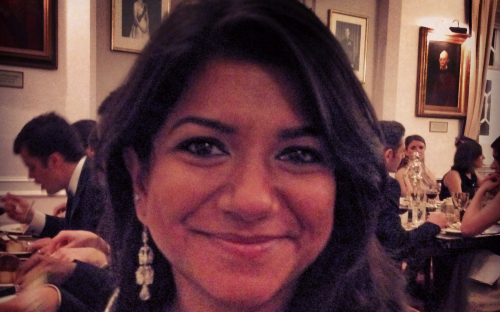While progress has been made on bringing women in the boardroom, there remains a gaping divide in the top ranks of business.
Education is often championed as the key to economic empowerment, but here too, business schools fall short on enrolling more women.
There is, however, much being done to redress a gender divide. For example, schools are holding women’s-only recruitment events and forming women’s networks and sponsorship programs.
Cass Business School in London is one at the forefront of the diversity drive. Women are well represented throughout the MBA program — approximately 30% of 2015-16’s cohort are women — plus the Cass Women in Business network organizes events with high-profile women speakers who are passionate about gender inclusion in the workplace.
The figures compliment a wider push to diversify the cohort at the business school, which enhances the learning experience.
Gauri Gupta is one of Cass’ many female MBA graduates. Below, she tells BB how business schools can help close the yawning gender gap in business.
Many business schools trumpet their level of gender diversity. What made Cass Business School stand out?
Growing up in three culturally diverse countries — Kuwait, India and Canada — instilled in me a deep appreciation for multiculturalism and a strong need to support gender diversity. I have always sought opportunities in both my professional and personal lives where I can mentor, nurture and support others. In choosing to invest in myself by pursuing an MBA, I was looking for an international program with a gender balance, and one that would provide opportunities to nurture and support my personal development.
Cass Business School ticked those boxes: Women are well represented throughout the MBA program, be it the faculty, the administrative staff, career services, or the cohort. Other top leading schools under consideration, such as Oxford and Cambridge, had lower numbers. The Cass MBA also has various student groups, such as the Cass Women in Business network, which organizes events with high-profile women speakers who are passionate about diversity and inclusion and are committed to helping other women find success in the workplace.
However, numbers only partly contributed to my choice. I also chose Cass Business School because of my positive experience during the application process.
When my interviewer, Dr Amanda Goodall, a senior lecturer at Cass, spoke about how the program would benefit from having more women like me and how I would benefit from being at Cass — I knew this was the school for me.
How can MBA programs help redress the gender imbalance in the top ranks of business?
While the education and experience gained from a MBA program is invaluable for future business and thought leaders, it is incomplete if we are unable to empower, improve and enrich the mind-sets of those capable of making a positive change. I firmly believe that this education can, and should, be taken a step further by expanding the MBA curriculum to include courses, projects and other ongoing initiatives on gender diversity.
They should be geared towards identifying and addressing unconscious biases of both men and women, improving emotional intelligence, and creating social awareness around challenges women face in the workplace.
It is also crucial to provide mentoring opportunities within the program. Having access to insights from women business leaders and experts through MBA networking events and electives is extremely beneficial for students.
MBA programs can also help redress the imbalance by continuing to create more opportunitiesfor women to enrol. They can do this by increasing the size of MBA cohorts, through increased access to financial support such as scholarships and bursaries specifically for women.
It is not enough to recruit women into senior roles solely in the name of gender diversity — women also need a nurturing and a supportive environment in which they can thrive. This support is possible at the grassroots level and MBA programs can provide not only a strong education, but also foster a culture of empowering men and women to support gender diversity in the workplace.
What are you personally hoping to gain from the MBA?
I chose to pursue an MBA not only to advance my career, but also to broaden my perspective and improve my skills in a global, fast-changing business world. And I expected to gain an academic education from a top global business school, collaborate on and participate in consultancy projects, and learn from my classmates through active discussions.
However, I had not expected to be elected a student representative for my cohort as well as the MBA program; to travel to Australia to represent Cass Business School at an international leadership program; to meet esteemed dignitaries such as Archbishop Desmond Tutu and the president of Iceland during travels around the globe; nor to form new friendships that would last beyond the MBA classroom.
The valuable insights gained from dignitaries, industry leaders, faculty members and my classmates as well as the experiences gained from my travels to Sydney, Las Vegas, Reykjavik, and South Africa, all made my MBA a holistic experience. My expectations were far exceeded in the short span of a life-changing year.
RECAPTHA :
90
e1
bd
e6








